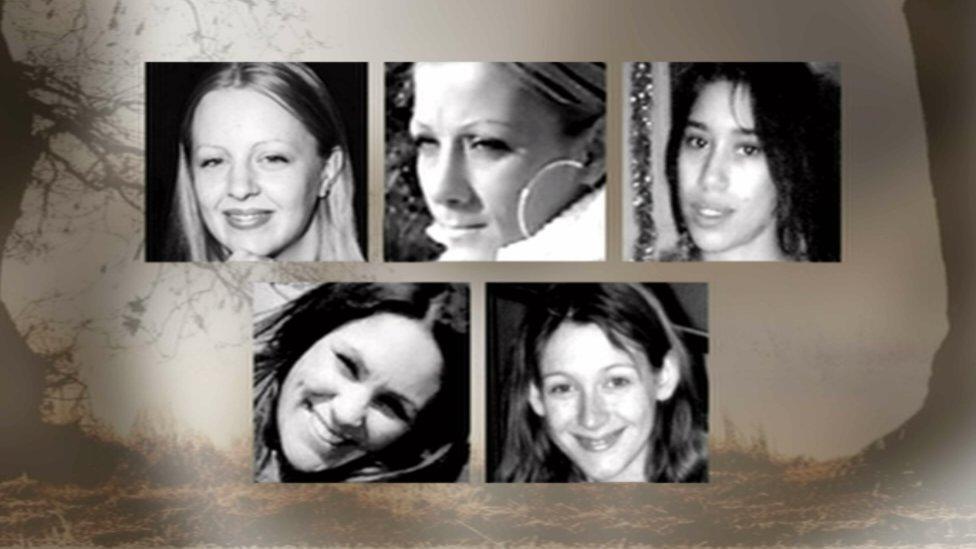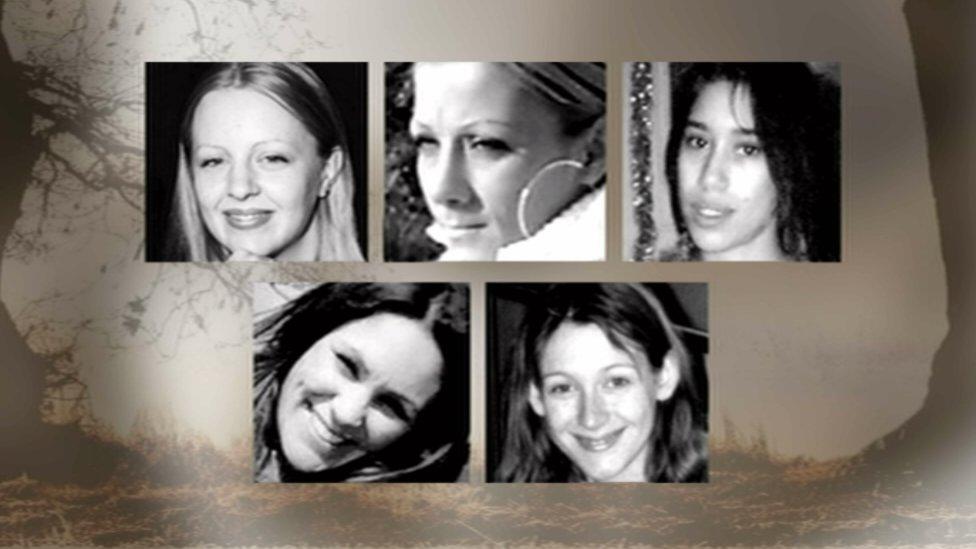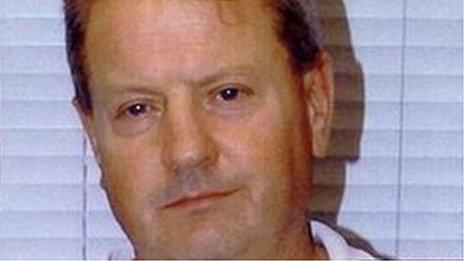Ipswich murders: Ex-leader admits town slavery 'failings'
- Published

The five Ipswich women, clockwise from top left, Gemma Adams, Anneli Alderton, Tania Nicol, Paula Clennell and Annette Nicholls
A former Ipswich council leader has admitted the town failed to end exploitation, trafficking and slavery following the murder of five women.
Tania Nicol, Gemma Adams, Anneli Alderton, Annette Nicholls and Paula Clennell, who were working as prostitutes, were murdered in 2006.
Councillor Liz Harsant said changes brought in by the council had "saved lives...but in many ways we failed".
The authority has backed new measures to tackle modern slavery.
The murders over six weeks in late 2006 prompted work by police, council and voluntary organisations to tackle street prostitution.
Ms Harsant, who was council leader at the time the five women were murdered, was speaking during a debate on the new charter against modern slavery,
She said: "We worked hard to end street prostitution in Ipswich, and I know that it saved lives. But in many ways we failed.
"Right now, in our town, young women and young men are being exploited. They are being trafficked and some are being held as slaves."
'Open people's eyes'
The council unanimously backed the motion put forward by Labour councillor Julian Gibbs, which vows to implement a series of measures to tackle modern slavery.
Staff will be trained in recognising signs such as abnormally low tenders indicating low levels of pay.
All contractors carrying out council work will also be required to comply with the Modern Slavery Act 2015.
Acting Det Supt Barry Byford said afterwards: "Modern slavery is a reality and happens everywhere, even in rural counties.
"We need to open people's eyes to the slavery happening around them and encourage victims to speak out."
- Published21 February 2018

- Published6 October 2014

- Published8 July 2014
